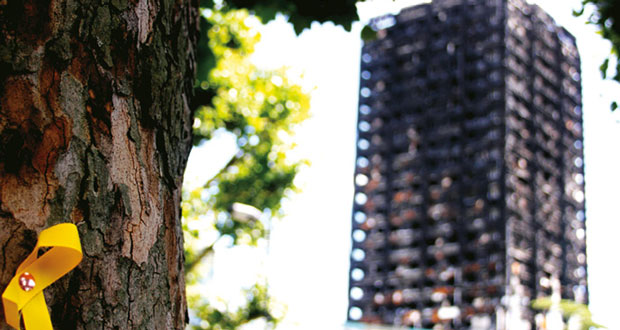 THE FM SERVICES SUPPLIER’S VIEW
THE FM SERVICES SUPPLIER’S VIEW
ANDREW LUNT,
MANAGING DIRECTOR, ATLAS WORKPLACE SERVICES
As the investigations into the Grenfell Tower disaster rumble on, we have noticed a significant and very positive step change in the way clients view the risk of fire. There is more attention being put on the safety of building occupants provided by fire doors, fire dampers, fire alarms, and all fire protection systems within a building. Improvements in record keeping, more detailed logbooks and photographic service reports are now being requested as standard. Many clients are now much more knowledgeable on these subjects with increases in webinars and online information. Understanding that they might be cross-examined in an inquiry situation has focused attention. As a service provider in this area, it’s a welcome change following a tragic event.
The Building Safety Act and the associated implementation of ‘The Golden Thread’ throughout the entire lifecycle of a building, together with the additional scrutiny afforded to high-risk buildings over 18m high with two residential units, will make service provision within acute healthcare, student accommodation and high-rise housing sectors more difficult. But nothing is impossible, and the reality is that our industry needs to help real estate owners deal with these challenges.
Currently, CAFM systems tend to be structured to hold data to form an effective planned maintenance regime and record statutory compliance. There will need to be a move to hold asset data in a more structured way to demonstrate systems function and asset association, so that all the parts of this huge puzzle can be clearly understood and withstand external audit and client review. Currently, there is no standard solution for this. However, we are seeing more discussion around ISO 55000 and asset management standards across property portfolios.
The second major concern for service providers that flows from these changes is competency. The Grenfell Tower inquiry has shown very publicly the intense scrutiny that both businesses and individuals will be put under in similar circumstances. Again, intelligent clients are now asking for much more detail around the competency of engineers and subcontractors: how they are assessed, what the management and appointment process looks like, and how this is evidenced.
It is probable that responsibility for managing things will become more onerous as time passes. For example, there will be the requirement for a robust appointment process, with the associated documentation trail, and a suitable and sufficient safe systems of work policy with a full suite of permits.
Linking this together, we have concerns over a potential increase in less scrupulous contractors looking to capitalise on such changes and perceived risks to building managers. We have seen fire door surveys that recommend full replacements where repairs would be perfectly feasible. There is a real risk that building owners and managers will be scared into carrying out works that are not required. In an already tight financial environment, clients could waste precious funds that could be better used on improving infrastructure and the workplace experience. Let’s help our clients make good decisions while ensuring the safety of their buildings and their inhabitants.





